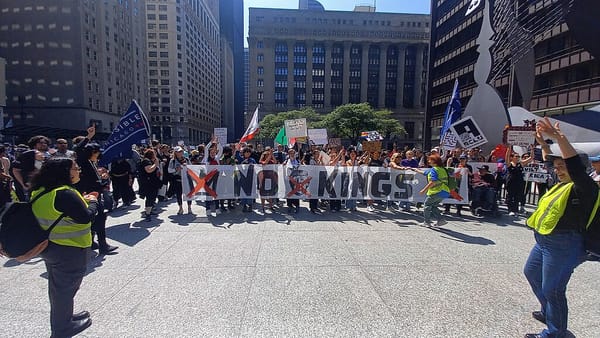Regime Change Is Still Illiberal

Few words have become more loaded in the vocabulary of American international relations than ‘regime change’. As documents regarding the origins of the Iraq war became public, it became clear that it was this—the removal of the government of Iraq—that was the ultimate goal of the war, and the myriad of rationales that had been announced were simply formulated to sell the war to the public, nothing more. The results of regime change in Iraq were, by any objective measure, disastrous—hundreds of thousands of civilians were killed in the invasion and occupation or the consequent violence between different factions of Iraqi society. Though the horrors of Saddam’s reign were undeniable, the inherent difficulties and human (as well as financial) cost of regime change made the entire process of regime change deeply suspect in the public imagination and substantially dimmed the prospects of the neoconservative movement. The development of a civil war in Libya shortly after the NATO-led regime change there further cemented this view. Belligerent rhetoric and actions may have undercut US relations with Iran and led to short direct conflict in Syria, but there was little public appetite for regime change in either location. Eventually, even propping up the regime in Afghanistan was seen as too costly, and so nearly twenty years after ousting the Taliban, the US allowed them back into power in Afghanistan.
However, the last nine months have led to something of a resurgence in American confidence. In Ukraine, Western weapons and Ukrainian resolve have turned back what was expected to be an easy Russian war of conquest. Iranian women and their bold protest against mandatory hijab wearing have set off a wave of instability in that country. And China’s COVID Zero policy, once vaunted for its apparent efficacy, has suffered dramatic setbacks as the disease infects more individuals and dissatisfaction against stringent lockdowns has bubbled over into public unrest. The major alternatives to liberal democracy, which have for several years been seen as ascendant, are all apparently in disarray. Francis Fukuyama, whose End of History theory was widely derided in the past decade, has gained a sudden new prominence, arguing again that illiberal autocracies have inherent weaknesses that liberal democracy can overcome.
Fukuyama is likely correct—liberal democracy has particular strengths that should not be ignored, and has at least the capacity to overcome rival systems. However, what was true in the aftermath of the Iraq war is still true today: a policy of regime change, even if it is aimed at expanding liberal democracy, is itself fundamentally illiberal, both in its nature and due to its likely outcomes. Far from being a non-interventionist position, however, this reality only increases the importance of defending liberal states where they have formed.
Elevating regime change to a primary goal makes other goals fundamentally impossible to achieve because the actors in foreign policy are in fact regimes themselves, not (as is often assumed) the societies they lead. To take one example: the Assad regime in Syria has been willing to plunge the country into a violent civil war rather than risk losing power in Damascus, a decision to the detriment of the people who live there but entirely rational from the decision making point of view of the government—particularly coming on the heels of Muammar Gaddafi’s violent death in Libya. The crises currently brewing in Iran, Russia, and China may present similar scenarios. Making the removal of a particular leader or governing system a priority for US policy makes it much harder to engage in good faith negotiation on other priorities—such as protecting the sovereignty of Taiwan, the rights of Iranian women, or the territorial integrity of Ukraine.
There may be circumstances in which those goals cannot be accomplished given a particular governing structure. Whether the Russian state as headed by Vladimir Putin will be willing or able to make peace with Ukraine remains an open question, and it is not the responsibility of the United States to ensure that the Russian government is preserved. But prioritizing a government change in any particular one of these circumstances will inhibit the ability of the US to engage in diplomacy in any others.
And even in less acute situations, commitment to regime change closes off diplomatic channels—and the rhetoric surrounding it can take on a life of its own. No state of affairs better demonstrates this than the six decade long quest by the US to remove the Communist regime of Cuba. While the sanction regime against Cuba has succeeded in stunting the island’s foreign trade, it has obviously made little progress in displacing the government. Moreover, it has cost the US economy hundreds of millions of dollars a year and put the country at odds with the United Nations. Substantial political barriers exist to removing the embargo, however—regime change has become an engrained goal, such that any effort at lifting sanctions immediately prompts cries of ‘appeasement’ of an ‘illegitimate regime’. The commitment to regime change as a goal is constricting, and forecloses on any possibility of realizing liberal ideals regarding the operation of commerce to improve ties between nations—and once that commitment becomes a part of political vocabulary, it can be very difficult to dislodge.
Even when unfriendly or oppressive regimes are successfully removed, as in Afghanistan, there are major barriers to reaching anything that could be called a long term success – and nowhere is this more visible than Afghanistan. While impressive human development milestones were achieved while the American military was present, it’s unclear to what extent those improvements will persist following the withdrawal of American troops and re-establishment of Taliban rule. Even if some human development gains prove durable, it’s difficult to argue that the time and money spent in Afghanistan could have been more efficiently used to improve outcomes within already friendly regimes rather than in attempting to impose one against such determined opposition in Afghanistan.
By contrast, abandoning regime change as a goal has created opportunities for strengthened relationships in places like Venezuela. Biden’s recent agreement with Nicolas Maduro is one such example. While the portion of the deal working with allowing increased oil production in the country has received the most attention, other provisions allow for creating a fund to benefit impoverished Venezuelans and has created the opportunity for continued negotiations to improve relations between the countries in the future—opportunities that were nearly unthinkable when the US remained committed to a policy of regime change. While this is not necessarily going to be possible in every case, such an approach holds more potential than the use of sanctions or, worse, military action to replace perceived enemies.
A move away from a regime change policy will also help the US in what should be its major goal in the coming decades—defending democratic governments that have managed to establish themselves. As Afghanistan as well as the post-Arab Spring states and other examples have shown, stabilizing such states is no easy task, and thus defending them from aggression should be a chief priority of American foreign policy. Maintaining norms around respect of national sovereignty will make future incursions on it by rival great powers more difficult—George W. Bush’s inability to rally an international response to the 2008 Russian invasion of Georgia, for example, likely had much to do with his inability to speak with any credibility on the matter of international sovereignty. In future hot spots, that kind of credibility will be needed to rally support smaller states eager to protect their own sovereignty but concerned about American intentions. The success the international community has had in rallying against Russia’s invasion of Ukraine should not be seen as an invitation to return to a regime change policy but rather a vindication of an alternative approach.
The public’s newly revived confidence in liberal democracy is laudable and opens a variety of opportunities to strengthen that system worldwide. However, it may also create the temptation to forcefully remove extant regimes in order to hasten the expansion of liberal democracy. Such an impulse is misguided—devoting resources to the goal of removing regimes is, even ostensibly in the pursuit of liberal goals, is inherently counterproductive. It wastes resources and negates the tools of diplomacy, commerce, and soft power that are better suited to pursuing liberal ends. The recently demonstrated efficacy of American power in defending extant democratic regimes should not be taken to mean that this fundamental truth about regime change is no longer applicable.
Featured Image is protest of the Iraq War in DC




